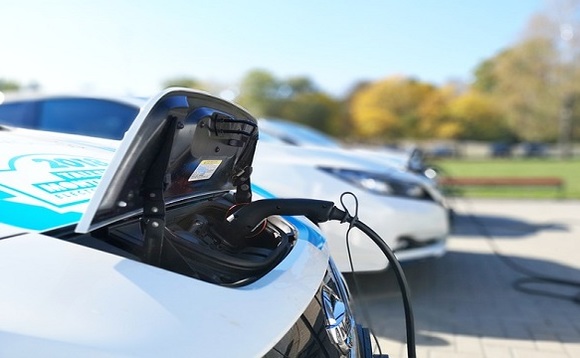
Rollout of EV chargepoints in the UK is lagging uptake of EVs
In a seven-point roadmap for EV infrastructure planning and delivery published this morning, industry group SMMT argued setting legal targets for charge point installations would help to de-risk much-needed infrastructure investment, while also helping boost public confidence in EVs by expanding the national network for powering up battery vehicles.
In order to help accelerate uptake of EVs and prime the market for the UK's ban on new petrol and diesel car sales from 2030, SMMT is calling for a new watchdog - dubbed Ofcharge - to be made responsible for overseeing progress towards new chargepoint targets, and for ensuring EV charging remains affordable, accessible and as easy as refuelling for drivers.
SMMT suggested chargepoint targets could be introduced as a condition of the government's forthcoming zero emission vehicle (ZEV) mandate, which will require carmakers to manufacture a minimum number of EVs each year when it comes into force from 2024. These could include goals focused on the ratio of plug-in vehicles per fast public charger in each economic region of the UK, as well as targets for the minimum number of charge points per forecourt or motorway service area, it said.
The report also calls for more support to incentivise and facilitate delivery of charging infrastructure and greater collaboration between players to ensure electricity networks are made fit for purpose for zero emission mobility.
SMMT chief executive Mike Hawes said that delivering a zero-emission new car and van market by 2035 needed the "commensurate commitment" of a broad range of stakeholders, in particular the charging industry in the wake of surveys that revealed ‘range anxiety' had replaced by ‘charging anxiety' as a major issue undermining consumer uptake of EVs.
"Our plan puts the consumer at the heart of this transition, assuring them of the best possible experience backed by an independent regulator," he said. "With clear, equivalent targets and support for operators and local authorities that match consumer needs, government can ensure the UK has a chargepoint network that makes electric mobility a reality for all, cutting emissions, driving growth and supporting consumers across the UK."
Public chargepoints remain critical to driving uptake of EVs and are necessary for commercial fleets as well as the third of British households that do not have off-street parking. But infrastructure in the UK has struggled to keep up with demand, with previous SMMT analysis of government statistics revealing the number of public chargepoints in the UK increasing by 70 per cent between 2019 and 2021, a period within which the number of plug-in cars has soared by 280 per cent.
SMMT said a "nationally coordinated, but locally delivered infrastructure plan" that put consumers interests first was needed to give chargepoint operators and local authorities confidence to plot EV infrastructure in the right places, ahead of need. Currently, public charge points are unevenly distributed across the country, with the ratio of electric cars to chargers in England's north 1:52 compared to 1:30 in the south, it said.
In response to the plan, the Department for Transport did not comment directly on SMMT's demands for an EV charging watchdog, although it said it would soon be publishing an EV Infrastructure Strategy for the UK.
It also highlighted £1.3bn support it has allocated to the roll-out of charge points for homes, businesses and on residential streets, which it claimed would help ‘level up' chargepoint provision while supporting the deployment of charging on motorways and major roads.
In total, the government has allocated £950m to rapid and ultra-rapid charge points, £620m for zero emissions vehicle grants and infrastructure, and has committed to introduce legislation that would require all new build homes that can to include an electric vehicle charging point. It has also pledged to regulate on payment methods, reliability, pricing transparency and open data at chargepoints later this year in a bid to enhance EV drivers' charging experience, it said.
"Our upcoming EV Infrastructure Strategy will soon be published and will set out our vision to create a world-leading charging infrastructure network across the UK," DfT said in a statement. "We continue to work with local authorities to ensure they are engaged in the transition, and are encouraging them to make use of the on-street residential chargepoint scheme which last year committed £20m for the rollout of public chargepoints in residential areas."